Flying Above Limits: Amy Bower
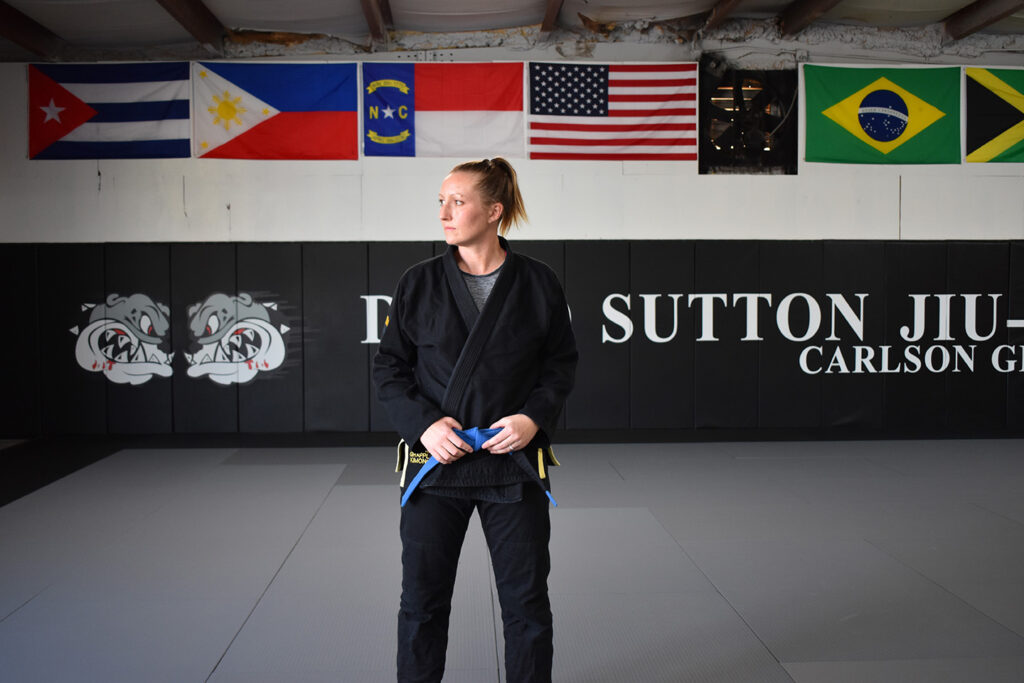
Story and Photos By Evelyn Sutton
A small-town girl from Tully in upstate New York, Amy Bower set her eyes in the big blue skies. Her dreams of flying above the clouds were accomplished when she became a pilot for the US Air Force, no easy feat. Back then, she didn’t know that one day she would also spread her wings on the Jiu-Jitsu mats. The part-time Air Force Reservist, wife and mother of two managed to adapt the skills she learned during her military and pilot training to her BJJ game. She has recently earned her promotion to blue-belt, and the new level has her soaring, setting Amy on the path to conquer new horizons.
JM: Tell us about yourself. Where are you from and what does a typical day in your life look like?
AB: I grew up in Tully, a small town just south of Syracuse in upstate New York. I went to college at Syracuse University, which is where I met Jeremy. We’ve been married for almost 14 years now and have a 4-year old daughter and a 6-year old son. Jeremy owns and operates Givr Packaging, a forward-thinking eco-friendly packaging company here in Melbourne, FL. I am a part-time Air Force Reservist, wife and mom. Our schedule is actually pretty dynamic, a careful balance of family, work, and BJJ kind of always fluctuating. I try to get to the gym every chance I get. Sometimes that means day classes when my kids are at school, sometimes it means we hire a babysitter and have “date night” on the mats.
JM: Have you trained martial arts before and what attracted you to BJJ?
AB: I did a few martial arts classes in college but it was more like a combo of Judo and Karate. Jeremy started training BJJ many years ago on and off. It wasn’t until a little over 2 years ago that he started training regularly again and convinced me to try it with him. I had watched him train before so I had a basic understanding of what Brazilian Jiu-Jitsu was but I was still as clueless as anyone else on my first day climbing onto those mats.
JM: I remember my first Jiu-Jitsu class as having no clue what was going on. How was your first class?
AB: My first class was with a Gracie Barra gym in Jupiter, FL. It was gi and I remember noticing how weird it was to be working out in this very heavy blanket-like outfit. Jeremy was with me at the class and we practiced skills that I certainly don’t remember and then did some side control positional rolling, though I didn’t know that’s what we were doing at the time. We moved to the Tampa area shortly after that first class. My second class was with Tony Way at Gracie Palm Harbor. Tony starts you off with the basics like most places, but has you rolling right away. That’s truly when I fell in love with BJJ, when I realized the physicality and endurance needed. I was a runner through high school, and still consider myself one, but the type of survival-based cardio you get while rolling is unique and I was instantly hooked.
JM: What impact has Jiu-Jitsu made in your life, as a woman, and individual?
AB: I look at people sometimes now and think, “I could defend myself against you if I needed to.” That’s a powerful thing. I’d say I feel generally more confident overall because of it. I also enjoy being part of the BJJ community. There is a certain amount of respect and understanding between people who are about to try to choke and break each other, and it makes way for great friendships.
JM: How long have you been training? Do you prefer gi or no-gi?
AB: I’ve been training for just over 2 years now. My first 6 months was all nogi (besides my very first class which was in the gi), so when I put a gi on 6 months in, I really hated it. It took a few months to warm up to the gi but now I actually prefer it. Now that I’m learning how to use it, the gi provides a nice point of control and leverage, especially against bigger or stronger training partners.
JM: What’s your favorite position and favorite submission?
AB: In gi I love getting a cross-face and taking the back then using a basic collar choke submission. For nogi, anaconda is still my favorite submission.
JM: What things do you find hard in training?
AB: I have a hard time remembering everything we learn. I’ve been incredibly lucky to have some truly gifted instructors, but I’ll learn the technique in class and think, “this is awesome, I’m going to use it all the time,” but then forget it a few days (or hours) later. I try to keep a notebook of techniques but my success rate at following through with that is spotty at best. It’s also tough to find time to train. I really have to make it a priority or it just doesn’t happen.
JM: And what do you find easy, what comes natural to you?
AB: Between riding horses and running in my youth, the cardio, endurance, and leg strength aspects of BJJ came easily for me. Horses, I think, helped me develop good coordination and muscle memory, which have helped a lot too. On the mental side of the game, there are some skills I gained during military and pilot training that translate to BJJ really well. Little things like attention to detail and establishing “triggers and scripts” as a type of mental flow chart for what to do and when, have helped me develop my understanding of techniques and positions.
JM: How was your first BJJ competition? What was the greatest lesson you took from it and will you compete again?
AB: I competed at LeLeo Code in November 2019, I was so nervous. There were only a handful of female competitors but I had 4 or 5 matches. In addition to being nervous, I remember having an incredible adrenaline dump which left me very, very tired after. I walked into the competition looking at every other woman there like a threat, but I left with an incredible amount of respect for them all. I will absolutely be looking to compete again. I hope to walk into my next competition without as many nerves.
JM: What does it feel like to be a woman on the mat in what is still a male dominated sport?
AB: It’s something I’ve become pretty familiar with. I was an Electrical Engineering major in college, where I was a minority as a woman. I joined the Air Force and even though the number of females serving our country continues to grow, there are still far fewer women than men. And then I decided to be a pilot in the Air Force, where there are even less women proportionally. The fact that it’s a male dominated sport doesn’t bother me. I make the most out of my training and try to enjoy every minute whether I’m the only woman on the mats, or at a women’s only class. When women train together, I feel like we are all harder on each other, which is a good thing.
Anything gyms can do to help women feel comfortable through those first few months is super helpful…and being really aware of how the women in your gym are being treated is critical.
JM: You were recently promoted to blue belt. What did that moment feel like?
AB: I always thought I would see it coming but it was a big surprise. Jeremy and I were promoted on the same day but separately. It was really special that we were recognized individually for our talents and hard work but also together, since finding time to train has really been a team effort. It was something I’ll always remember, an intentional and public recognition of skills that you can wear around on your waist. What an honor!
JM: What do you consider the greatest challenges for women in Jiu-Jitsu?
AB: Finding great training partners is important. I have had great training partners that are men, but when I roll with women it feels like a more honest assessment of each other’s skills. I guess for both women and men, if you don’t find great training partners right away, it can be hard to keep coming back and getting smashed day after day at the beginning. The right training partners will keep smashing you but also show you that there is a light at the end of the tunnel and help you recognize the ways in which you’re improving.
JM: Who are some of the women who inspire you in BJJ?
AB: All the women I’ve trained with have inspired me. The aggressive nature of BJJ doesn’t come naturally to a lot of women, so the fact that we have all developed it and continue to work at it is amazing. One of my closest childhood friends, Ann Hahn, and her husband own a gym in upstate New York, Shogun Martial Arts. She was already a brown belt when I started training. It wasn’t until a few weeks after I had been training that it clicked… wow, Ann is a brown belt! I think it’s a sport that is very hard to understand or appreciate until you practice it. Until you’ve been on the receiving end of shoulder pressure, it’s easy to assume that BJJ is a type of Karate. Ann has been inspiring me along the way. We used to ride horses together constantly, but we still haven’t had the opportunity to roll together, hopefully soon!
JM: What is something that people would be surprised to learn about you?
AB: In 2017 we sold our house and most of our possessions and lived in an RV. We traveled around the country for the first year and then traveled around Florida our second year, ultimately deciding to settle down in Melbourne, FL. It was quite an adventure with 2 small kids, we feel really grateful to have been in a position to make that choice for our family and have that experience.
JM: You’re married and your husband Jeremy also trains. What is it like to share this practice with your significant other?
AB: It’s amazing. There are a lot of challenges that come with BJJ. Getting smashed pretty consistently as a lower belt, then feeling like you’re really starting to get it only to have your house of cards knocked down a few weeks or months later when you’re game falls apart again. It’s constantly learning and growing and the fact that we get to learn and grow together is really rewarding. It’s certainly brought us closer. I think having a common passion and hobby is critical especially with busy schedules and little kids. We can motivate each other and celebrate our achievements in a way that would be hard to appreciate if both of us weren’t training.
JM: What is your advice to women whose partners do not support or approve of their training?
AB: Oh wow, that’s a hard question. I’m not really sure I have any great advice. Jeremy has been training longer than me and the fact that he is supportive and understands the sport is the only thing that keeps me coming back to the mats some days. I think that would be a hard situation to deal with. I guess my advice would be to see if you can get them to try it out! If you can head and arm choke them every morning they’ll probably eventually want to learn how to defend it right?
JM: What are your future plans for Jiu-Jitsu?
AB: At this point I just want to keep coming back. Keep growing and learning with Jeremy and with my other amazing training partners at Carlson Gracie Melbourne. I’d love to compete, teach, and one day be a black belt, but I’ll take it one step at a time for now!
JM: How do you feel about the level of Jiu-Jitsu education currently available to women? Do you feel it’s lacking in any way?
AB: I think it’s harder for a lot of women to initially step on the mats and then get through the first few months. Once you get some basic skills under your belt it gets easier and being a woman in a male dominated sport becomes less of an issue. Anything gyms can do to help women feel comfortable signing up and stay comfortable through those first few months is super helpful. Women’s only classes, female-led and focused seminars, and being really aware of how the women in your gym are being treated is critical.
JM: What is an event you would like to compete in?
AB: I’d love to start competing more but I don’t have any specific competitions I’m aiming for at this point.
JM: If you could pick anyone in the world to roll with – male or female – who would you choose and why?
AB: John Danaher. He breaks things down in a very logical way and in many circumstances, watching instruction from him has helped me see a technique or position in a completely different light. It would be an amazing experience to roll with him or even just attend a seminar.
JM: What is your hope or resolution for 2021?
AB: I think “world peace” is always an acceptable answer, right? Seriously though, I want to keep working at BJJ and make sure I don’t fall into the large pool of folks who get their blue belt and then stop training. I’m trying to get to the gym at every opportunity but also see the journey for the marathon it is and effectively balance work and family. It’s no easy task, but it certainly helps having a spouse that understands the addiction and bitter challenges that come along with BJJ!

Our printed magazine is full of extraordinary women with extraordinary stories, get your printed copy via mail today >


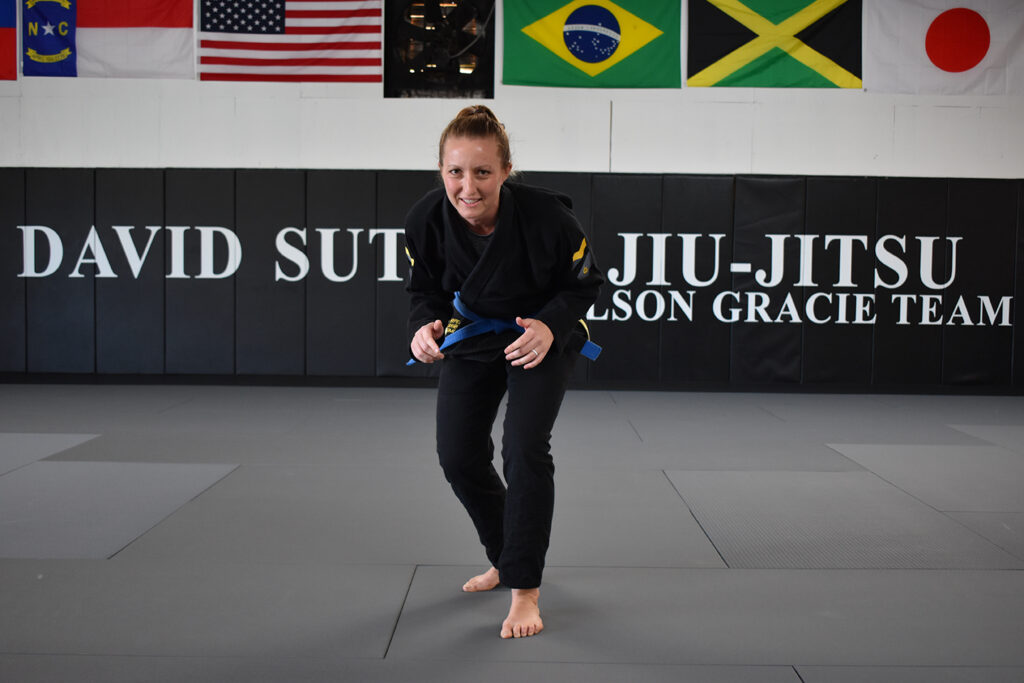
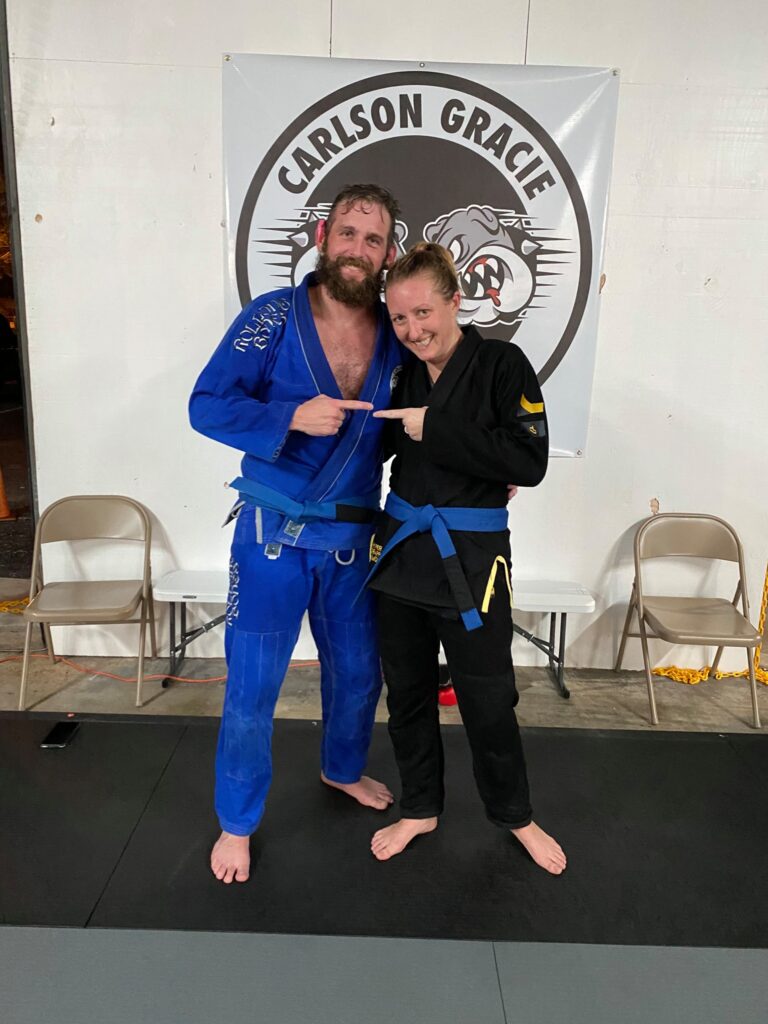
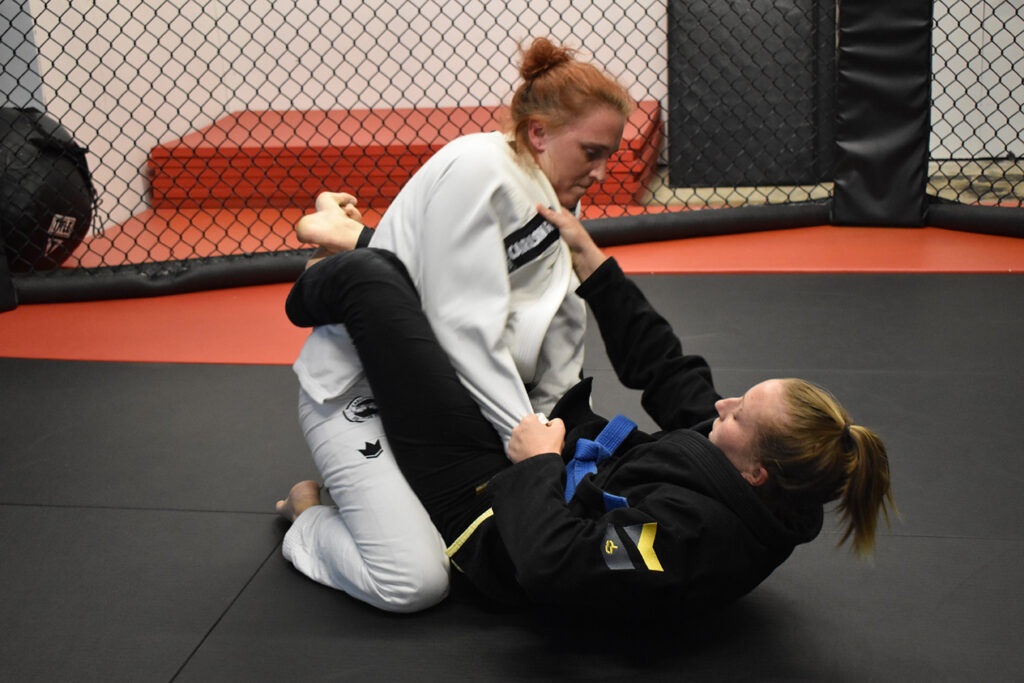
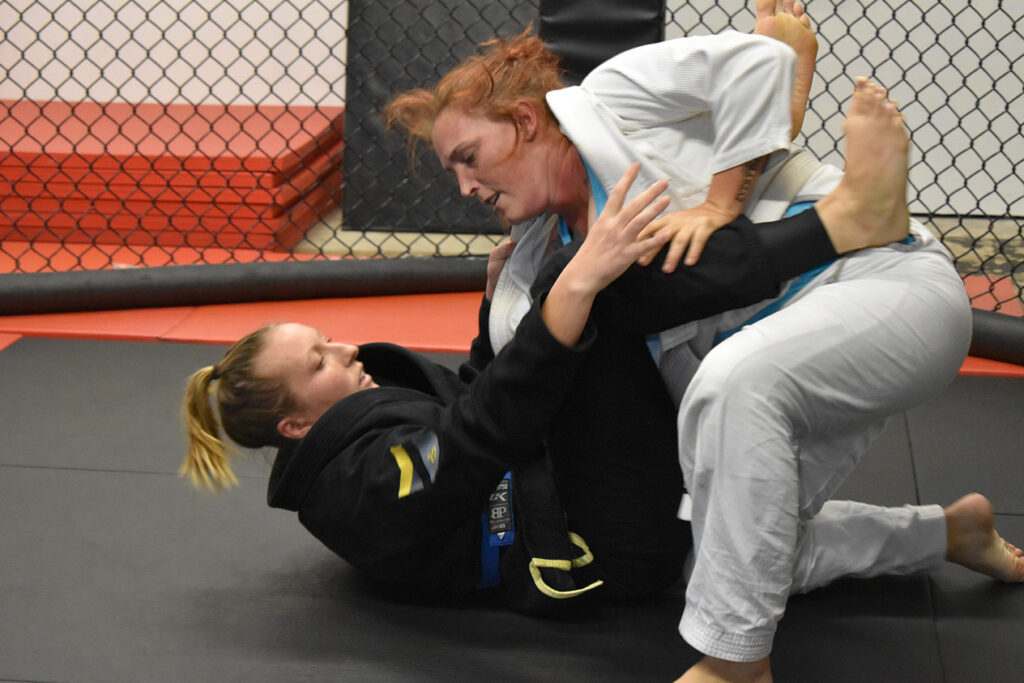
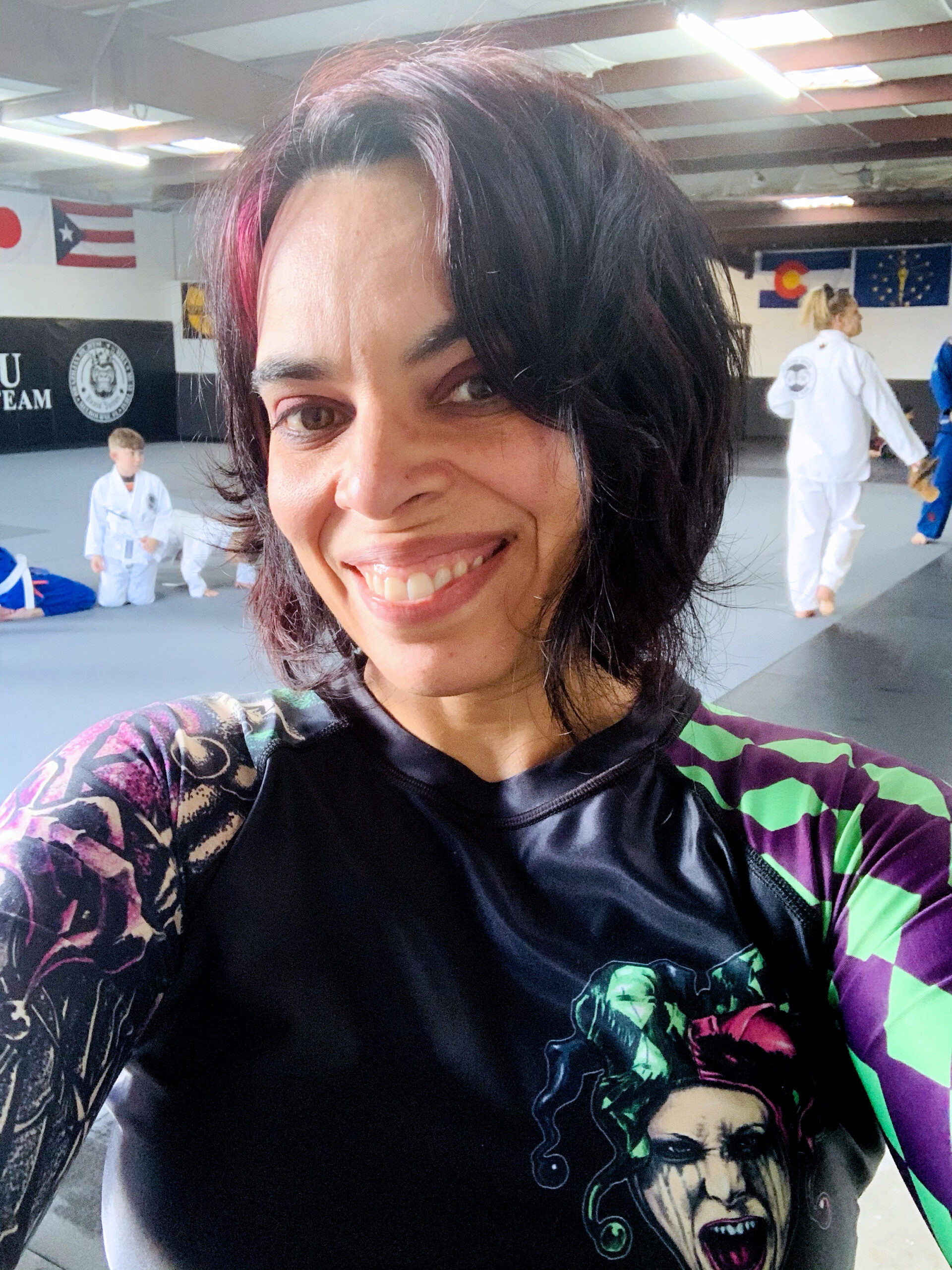
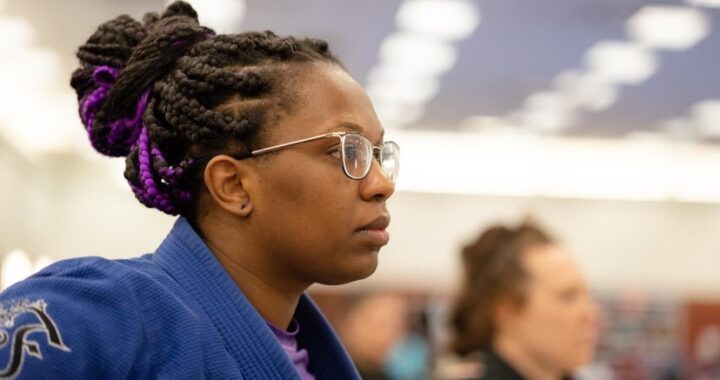 Torrie O’neil, Big Girl, Big Heart
Torrie O’neil, Big Girl, Big Heart 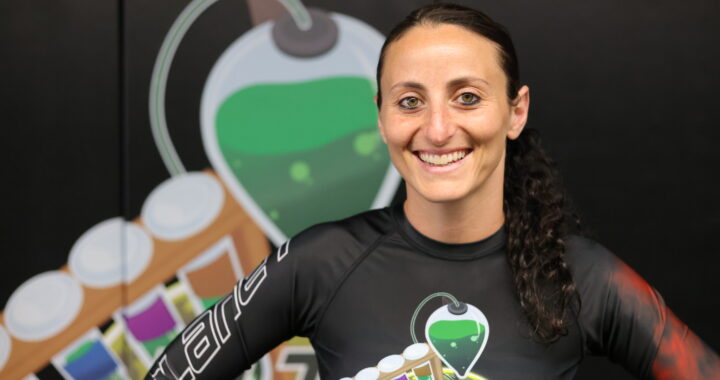 Lila Smadja-Cruz, Women’s NoGi Trailblazer
Lila Smadja-Cruz, Women’s NoGi Trailblazer 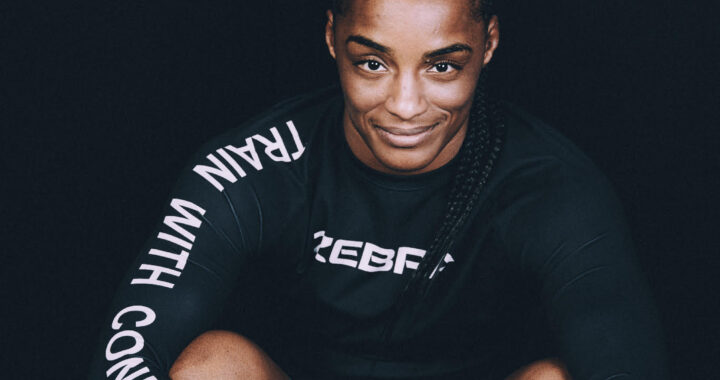 Akeela, The Warrior
Akeela, The Warrior 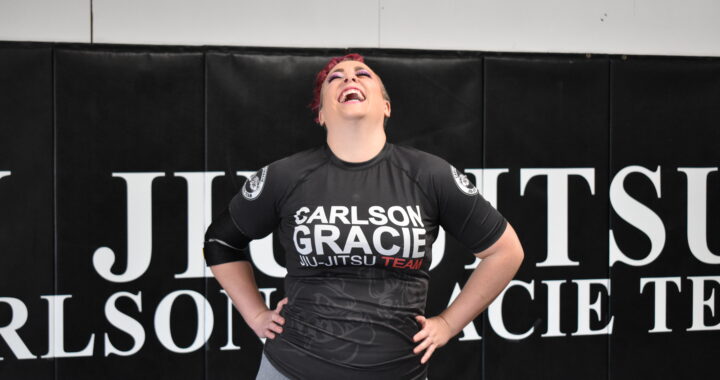 Our Beauty Queen
Our Beauty Queen 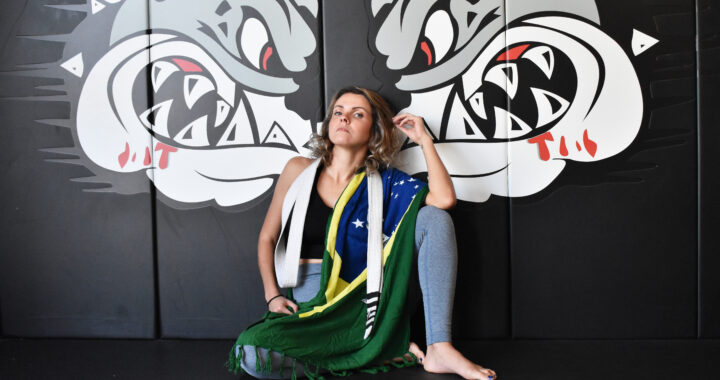 Made in Brazil
Made in Brazil 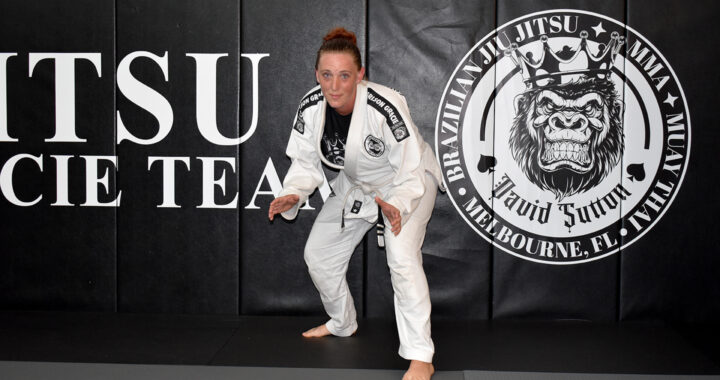 The Shield-Maiden
The Shield-Maiden 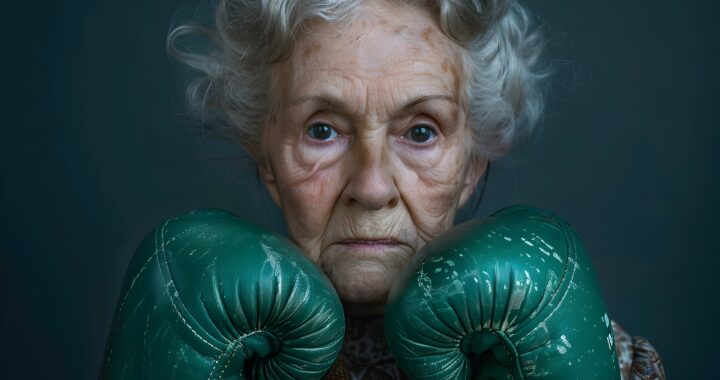 Father Time is Undefeated
Father Time is Undefeated 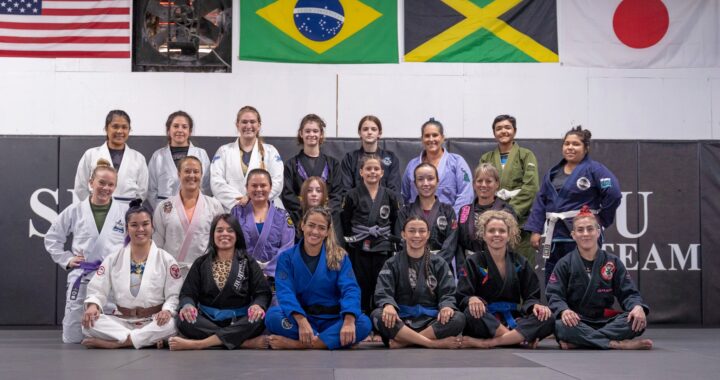 The Jiujiteira Sisterhood
The Jiujiteira Sisterhood 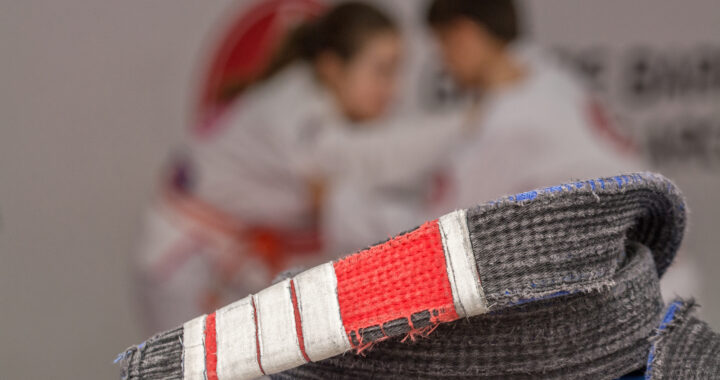 Advice in the Ranks- From White to Black
Advice in the Ranks- From White to Black  ADGS Rome: Jiujiteiras Shine in the Land of the Colosseum
ADGS Rome: Jiujiteiras Shine in the Land of the Colosseum